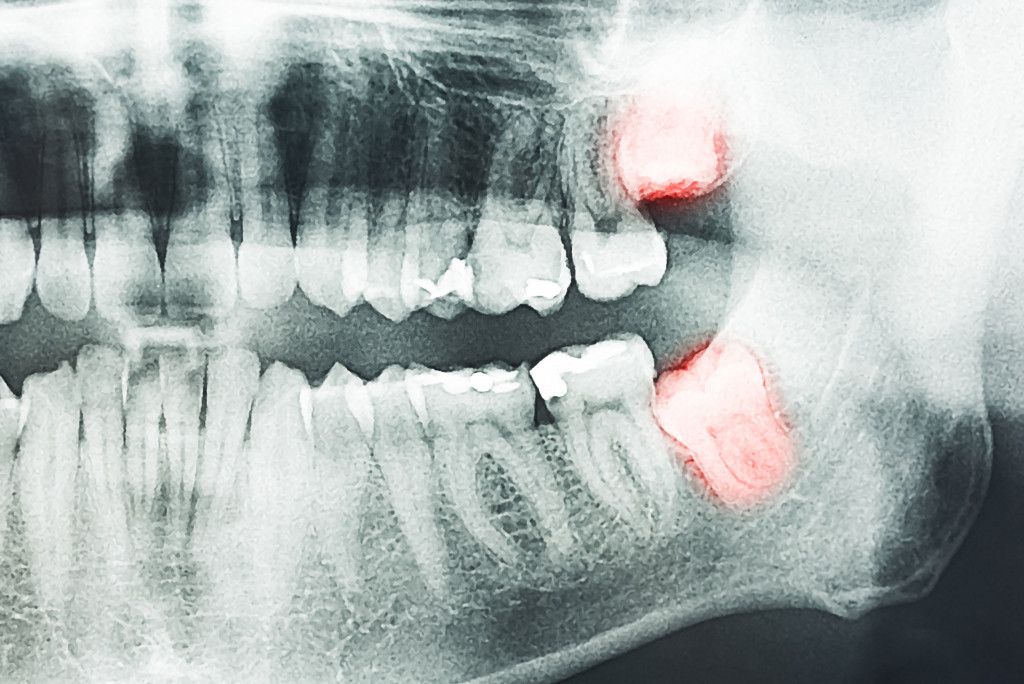Having healthy teeth is important to overall health. Even if your dental hygiene habits are good, problems can still arise. It’s essential to be aware of common dental issues so that you can take steps to prevent or treat them early on. This article will discuss five common dental problems and what you should do if they occur.
Tooth Decay
Tooth decay is one of the most common dental problems, caused by bacteria eating away at enamel and creating cavities. Statistics show that 92% of Americans have had or will experience cavities at some point in their lives. It’s important to take steps to reduce the risk of tooth decay.
To prevent tooth decay, it is essential to have regular check-ups. By brushing twice a day for two minutes with fluoride toothpaste and flossing daily, you can easily avoid gum disease. If a cavity develops, your dentist will typically do a tooth replacement. This involves cleaning the decay out of the hole, filling it with a material like an amalgam or composite resin, and then sealing it. You may need an implant to restore the tooth in more severe cases.
In addition to regular oral hygiene, what you eat and drink can also affect your risk of developing tooth decay. Foods high in sugar and starches are the worst culprits, as they provide food for the bacteria that cause cavities. Limiting sugary snacks and drinking water instead of sweetened drinks is an excellent way to reduce the risk. It is also important to remember that the acidity of foods and beverages can erode tooth enamel. This means brushing after eating or drinking anything acidic, such as citrus fruits and soft drinks, is vital.
Gingivitis
Gingivitis is an inflammation of the gums caused by plaque build-up along the gum line leading to redness, tenderness, and even bleeding during brushing and flossing. Regular dental cleanings are essential for maintaining healthy gums, and daily flossing to remove bacteria from the gum line. In more advanced cases of gingivitis, your dentist may recommend deep cleaning or scaling and root planing to remove plaque and tartar build-up below the gum line.
Without proper treatment, gingivitis can progress to periodontal disease, which affects the tissue and bone that support your teeth. Symptoms of advanced periodontal disease include gum recession and loose teeth due to the destruction of supporting bone structure. Treatments for more severe cases may involve antibiotics or surgery to remove diseased tissues and reduce infection.
Good oral hygiene practices are the key to preventing gingivitis and keeping healthy gums. This includes brushing twice daily with a soft-bristled brush, flossing daily, and using an antibacterial mouthwash to reduce plaque build-up.
Tooth Sensitivity

Tooth sensitivity is caused by the gradual wearing away of enamel on the surface of your teeth, which exposes the sensitive dentin underneath. Common triggers for tooth sensitivity include hot or cold foods or drinks, brushing with a hard bristled brush, or over-brushing. To reduce sensitivity, switch to a soft-bristled brush and use desensitizing toothpaste. Your dentist may also recommend fluoride treatments that can help strengthen your enamel and reduce discomfort when consuming hot or cold foods.
If the sensitivity persists despite your home care, see a dentist for an evaluation. Your dentist can check for cavities or other dental problems that may be causing the discomfort, as well as recommend additional treatments such as fluoride varnish or desensitizing toothpaste and gels. They will also review proper brushing and flossing techniques with you and ensure you are not applying too much pressure when brushing.
In some cases, the sensitivity may also be caused by exposed root surfaces due to gum recession. If this is the case, your dentist may recommend a soft tissue graft to cover exposed roots, preventing further wear of the enamel and reducing sensitivity.
Toothache
An infection or inflammation causes a toothache in the tooth that can be due to anything from a cracked tooth, cavities, and even gum disease. Treatment will depend on the cause of the pain, so it’s essential to have your dentist diagnose it first before attempting any home remedies. If it’s due to bacteria, antibiotics may be prescribed as well as a root canal or extraction depending on the severity of the case.
Home remedies for toothache relief include rinsing your mouth with warm salt water, which can help reduce inflammation and provide some soothing relief. You can also take over-the-counter painkillers such as ibuprofen or acetaminophen to control the discomfort. Applying a cold compress to the affected area can also help reduce swelling and pain. Clove oil, a natural analgesic, can also be used directly on the affected area and has been known to provide some relief. However, it is essential to note that home remedies are not a substitute for proper medical care. If the toothache persists for more than a few days, you should contact your dentist for further evaluation.
In Closing
Dental problems range from minor issues like tooth decay to more severe problems like gum disease or an abscessed tooth. Identifying the cause of a dental problem is essential for proper treatment and prevention. With appropriate care, You can prevent many common dental issues with regular brushing, flossing, and dental check-ups. However, if a dental problem does arise, it is vital to seek medical attention immediately, as leaving it untreated can result in more severe and costly issues. In the end, proper oral hygiene practices will help ensure that your teeth remain healthy and strong for years to come.

